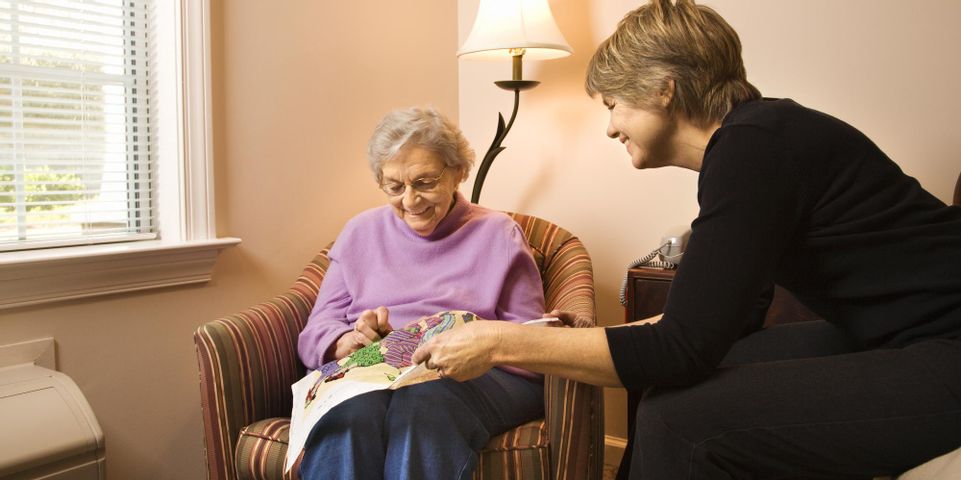How to Cope With a Family Member Who Has Dementia

Learning that a family member has dementia can be a scary and confusing time if you don’t know much about the illness. However, there are many ways you can make the experience more manageable for both you and your senior, who may now require special elderly care. Below is some information on how to cope with a family member who has dementia.
4 Ways to Cope With Your Senior’s Dementia Diagnosis
1. Learn More About the Disease
Dementia is a complicated illness that can cause confusion, disorientation, memory loss, and mood swings. Facing the disease for the first time when a loved one is diagnosed can feel intimidating and overwhelming.
To prepare yourself, it’s crucial to know what to expect as the disease progresses. For example, depression could be a side effect of medication, so watch out for loss of interest in enjoyable hobbies, mood swings, and loss of appetite. If your senior exhibits such signs, accompany them to their doctor’s appointment to discuss ways elderly care can benefit them, such as hiring a health aide for companionship.
2. Create a Routine
A common symptom of dementia is memory loss, which can make even simple tasks frustrating and confusing for the person with the disease. For example, your senior may forget how to tie their shoes or where they placed their keys. Developing a daily routine will make these tasks more manageable and can lower negative reactions like anxiety and agitation.
For example, place a bowl near the door where they can put their keys in and purchase slip-on shoes or sneakers with VELCRO® fasteners to make putting on their shoes easier.
3. Be Affectionate & Reassuring
 Dementia often leaves people confused and anxious. If they ask you to repeat a piece of information you’ve already told them several times, repeat it to them calmly and patiently. You can also write down answers to common questions on a card and place it on a coffee table or bookshelf so they can refer to it when they have questions.
Dementia often leaves people confused and anxious. If they ask you to repeat a piece of information you’ve already told them several times, repeat it to them calmly and patiently. You can also write down answers to common questions on a card and place it on a coffee table or bookshelf so they can refer to it when they have questions.
For example, if they frequently ask about a family member, write down that the family member is working or they’re away on vacation.
4. Consider Home Care Services
If you can’t care for your loved one because of work or personal obligations, consider professional help. A home health agency can offer specialized elderly care, such as 24-hour in-home care and companionship. Health aides are trained to complete tasks such as bathing, grooming, making meals, administering medication, and cleaning the home.
If you need help taking care of your loved one with dementia, turn to Deer Valley Home Health Services. This agency has three locations in St. Charles, St. Louis, and Berkeley, MO. It has been helping family members who act as caregivers for over 10 years by providing elderly care services, nurse visits, special needs assistance, and more. Visit their website to learn more about their services or call (314) 355-3679 to speak with a professional.
About the Business
(2 reviews)
Have a question? Ask the experts!
Send your question

